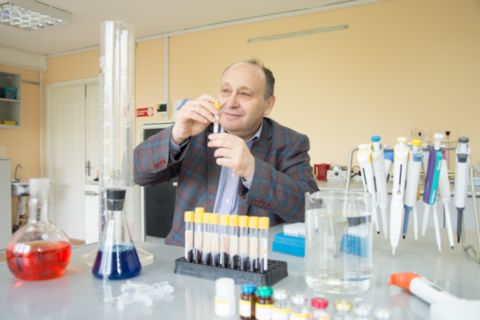The President declared 2021 the Year of Science and Technology in Russia. March is devoted to New Medicine and research in this area. The direction is developing at SUSU by the scientists from the School of Medical Biology. One of the most recent studies presented examined the association of post-traumatic stress disorder with cardiovascular disease. The research was supported by the Russian Science Foundation. It is published in the highly-rated Journal of Applied Physiology (Q1).
Post-traumatic stress disorder (PTSD) is a type of anxiety disorder that occurs in people who experienced a dire event or a real threat to their life. Scientists say that a quick recovery of the psyche is the norm for a person. However, PTSD remains a common problem that needs to be studied and addressed.
Post-traumatic stress disorder is studied at the Neurohepatology International Research Laboratory of South Ural State University. Scientists have previously created an experimental model of complex PTSD to find out how the disease develops. The model reflects the clinical symptoms of the disorder. Previously, SUSU researchers proved that interval hypoxic training helps to cope with PTSD and treats dysfunction of internal organs.
In addition to liver and kidney problems, people with diagnosed PTSD often experience cardiovascular diseases. Scientists at South Ural State University have scientifically confirmed the association between the disorder and heart disease by testing laboratory rats.
The experiment involved two groups of 155 rats. Most of them underwent exposure to the smell of cat urine for ten days. As a result, PTSD-vulnerable rats from the group performed poorly on all parameters tested. These are exercise tolerance, ECG, myocardial histomorphology. Also, PTSD-vulnerable rats developed multiple signs of heart damage.
«This study reveals the mechanism of cardiac complications in PTSD. It is associated with inadequate levels of stress hormones and the development of oxidative stress. Further research is related to the search for the most effective method for correcting cardiac complications in the experiment. It became clear that in addition to psychological help, people with PTSD would also need supportive cardio therapy», – Vadim Tseilikman, Doctor of Biology, Professor, Director of the SUSU School of Medical Biology said.
The study was part of the project supported by the Russian Science Foundation (RSF). The project has already been completed. Representatives of the Russian Science Foundation note that the whole project has been successful.
«The results may be promising for finding new ways of improving the effectiveness of drug PTSD therapy in the clinic. Ultimately, the optimization of PTSD therapy is a task that is in demand both in the economy and in the social sphere, since up to 40% of patients are resistant to drug therapy, while the losses from the disease are increasing, the representatives of the Russian Science Foundation remarks».
Scientists from South Ural State University, the Institute of General Pathology and Pathophysiology of the Russian Academy of Sciences (Moscow), Research Institute of Human Morphology (Moscow), Vitebsk State Medical University (Belarus), Chelyabinsk State University (Chelyabinsk), Institute of Immunology and Psychology (Yekaterinburg) ), South Ural State Agrarian University (Troitsk) and the University of North Texas Health Science Center (USA).




